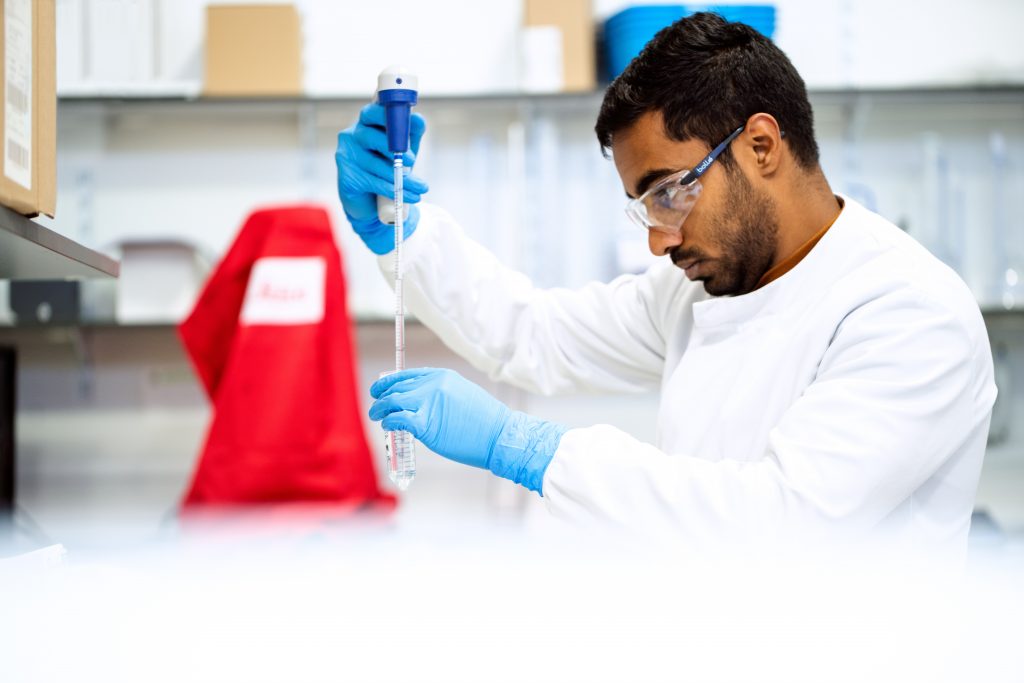
From the beginning of the Coronavirus pandemic, pharmaceutical companies have been in a mass frenzy to come up with the first vaccine to bring to market. Many different trials are being conducted and early reports showed that a vaccine could be ready this fall. Even President Trump has repeatedly stated that a vaccine could be ready before Election Day. Unfortunately even the frontrunners have slowed their progress on clinical trials. Pfizer and other pharmaceutical companies involved in the COVID-19 vaccine have had promising reports in their smaller scale trials, but stage 3 trials will show much more information. There are now 5 pharmaceutical companies who have entered phase 3 trials, which are larger scale trials to determine the effectiveness of the vaccine in more people. According to statnews.com, “front-runner Pfizer revealed in an earnings call that the first interim analysis in its phase 3 trial has not yet occurred. That means there hadn’t yet been enough COVID infections among the trial participants to take a first stab at analyzing whether the people randomly assigned to receive vaccines were infected at a lower rate than people who were assigned to get a placebo injection”.
Why has this vaccine taken so much longer than expected? Many companies are citing safety concerns. Johnson & Johnson and AstraZeneca are two companies who had to pause their clinical trials for safety reasons. Both companies used the term “unexplained illnesses”. The New York Times reports that these delays are a good thing, not a bad thing. “Clinical trials experts said these delays were comforting, in a way: They show that the researchers were following proper safety procedures” (NYtimes.com). In phase 3 trials larger groups of people volunteering are randomly given either a placebo or vaccine, and they don’t know which one they receive. Following administration, each participant is closely monitored for symptoms. Minor symptoms are not usually enough to pause a trial, but serious symptoms (known as an “adverse event”) have to be immediately reported to the pharmaceutical company and to the Food and Drug Administration. After reporting, a long investigation is done into the individuals involved in the trial, their health history, the nature of the symptoms and what they mean, etc. Each of these steps takes time and causes major lags in vaccine development. The trial cannot continue until discovery has been made. NYtimes.com All of this information should make consumers breathe easier when considering the vaccine-with the level of safety and investigation done at the pharmaceutical level, they are doing what they can to maintain safety once their vaccine is brought to market.
Dr. Anthony Fauci, director of the National Institute for Allergy and Infectious Diseases, was recently asked his opinion on when he expects a COVID-19 vaccine to be available in the United States. According to Dr. Fauci, if the trials can continue as planned, a safe and effective COVID-19 vaccine could become available to some high-risk Americans in late December or early January. Americans will likely know “sometime in December whether or not we have a safe and effective vaccine,” Fauci stated in live chats on Twitter and Facebook.
Many Americans are anxiously awaiting any news on vaccines and when life can begin to feel normal again. Life in a pandemic world is exhausting, stressful and scary. Unfortunately stress can affect the immune system among all the other negative side effects to the body. Remember to take some time to find stress relief, exercise and eat right. This will not last forever and we will get back to normal. In the meantime; stay safe, wear your mask, maintain social-distancing and wash your hands.
Source: Stat News and New York Times